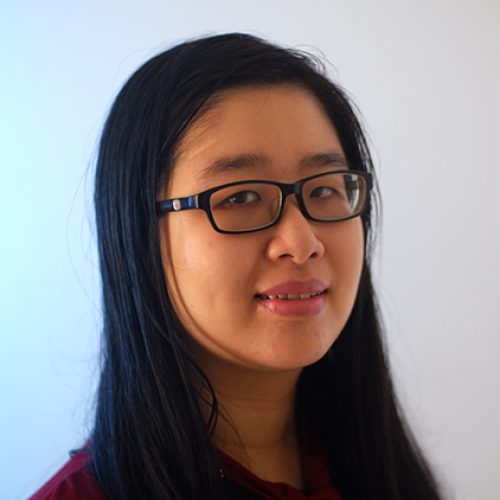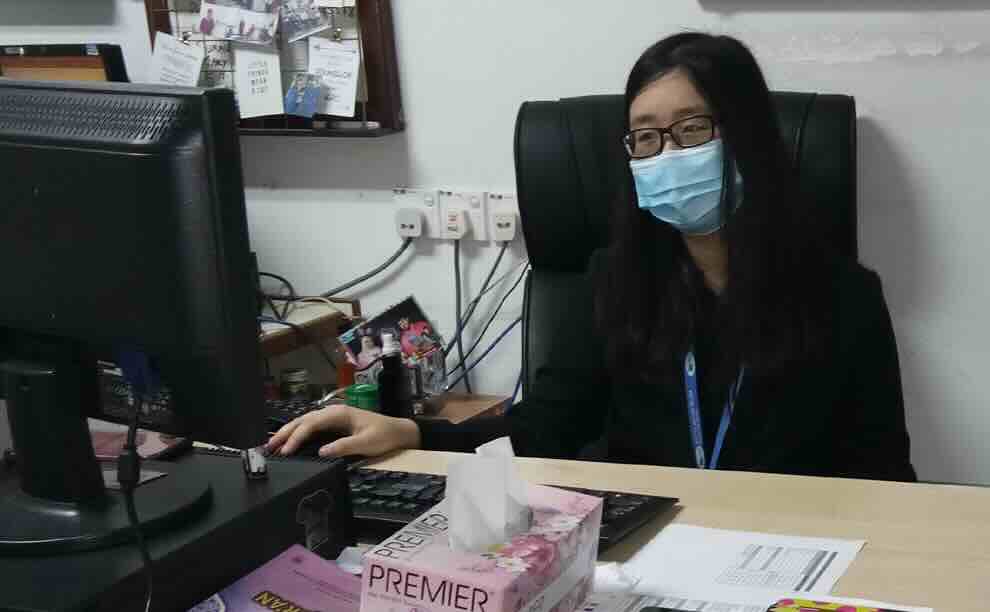FROM A FRONTLINER:
OUR VERY OWN CHAMPIONReessa Chee -- Counsellor (Psychology)
More than six months ago stroke champion Reessa joined a leading heart specialist institution in Kuala Lumpur, to begin her dream career. Having lived with a stroke from the tender age of nine, she was no stranger to the school of hard knocks. Where many of us struggled or took time to cope with MCO, social distancing, stay home, wash-wash-wash and many other new norms … she remained unfrazzled and is proud that as a stroke survivor she has an opportunity to serve the nation as a frontliner.
Here she shares with Strokenews some of her experiences while working in a demanding hospital environment.

It has always been my desire to be part of a profession that cares and helps people to feel better. After I survived a stroke 20 years ago, I worked doubly hard to rebuild my life around the various losses that the stroke brought into my life. My career choice was in counselling and psychology because of the way people intrigued me. As a counsellor, it is a privilege to witness and hear without judgment. For me personally, this is one of the most healing experiences we can have as a human being.
Securing a full-time job in a hospital setting has been a dream come true for me. What I did not expect to happen was having to be on the frontlines during the current global pandemic. I work with patients – from newborns to seniors above the age of 80 – to support them emotionally in their ailment and recovery process. I provide a non-judgmental presence and a space for hope and healing.
Working full-time as a stroke survivor lands me in many unique situations that light up my day. The subject of stroke is often brought up by my patients and staff who I work with. I reply candidly and openly about my condition, as it often helps them to understand it and thus support me better.
For example, during instances where I have needed extra help in putting on the Personal Protective Equipment (PPE), I ask for help with the various layers and assembling them together. My left hand is flaccid and so some things are still a challenge.
Occasionally, I also utilise my experiences as a stroke survivor to facilitate connection and provide understanding to my patients. I feel so grateful to have found a way to rebuild my life around the effects of my stroke.
Wearing the PPE and conducting counselling sessions was a learning experience. Thankfully I don’t have to use it daily. The layers of plastic are worn one on top of another, on top of what I’m already wearing. I work in an environment that is often very cold, so to be sweating in it was indeed a unique experience. As I don’t normally talk in a loud voice, my patients had difficulties hearing me when my voice used to get drowned by the layers of masks over my mouth. I had to learn fast to speak up and be understood and avoid unnecessary frustrations.
Having independence has opened up lots of possibilities for me to contribute whatever I have learnt, and within my capacity as a stroke survivor. Having found my calling as a counsellor and waking up each day to a job that I absolutely love, has truly been a dream come true for me.

There are many special moments at work. I am so grateful for each person who has chosen to open up the door of their hearts to let me peek inside. I especially love seeing the growth in my clients, when their faces light up with hope when they make a new connection. I hold hope for those who can no longer bear to hope and replace defeat with a heart of courage.
I would like to urge all stroke survivors to also lean towards hope. Your life may look very different right now, but it is possible to pursue dreams and see them come true. Life after stroke may not look the same as what you imagined it to be pre-stroke, but it does not need to be all doom and gloom either. It’s normal to have a period of adjustment, and to feel overwhelmed and lost at times.
I do still face challenges in my life, such as extreme fatigue, having to take more days off as compared to other colleagues, but I have learned to take one day at a time.
Having experienced this pandemic and having lived with isolation and physical distancing for more than six weeks now (as I write this), I would like to emphasise on the need to ‘be gentle with yourself’. Give yourself the tenderness you would give a dear family member or a close friend. Love yourself. Then with other strong traits such as determination and resilience, make your second chance at life truly a gift in itself, and not one to be wasted. Lastly, please reach out for help when you need to. We are all in this together.
Source: Strokenews (Issue 2, June 2020), Pgs. 12 – 13
